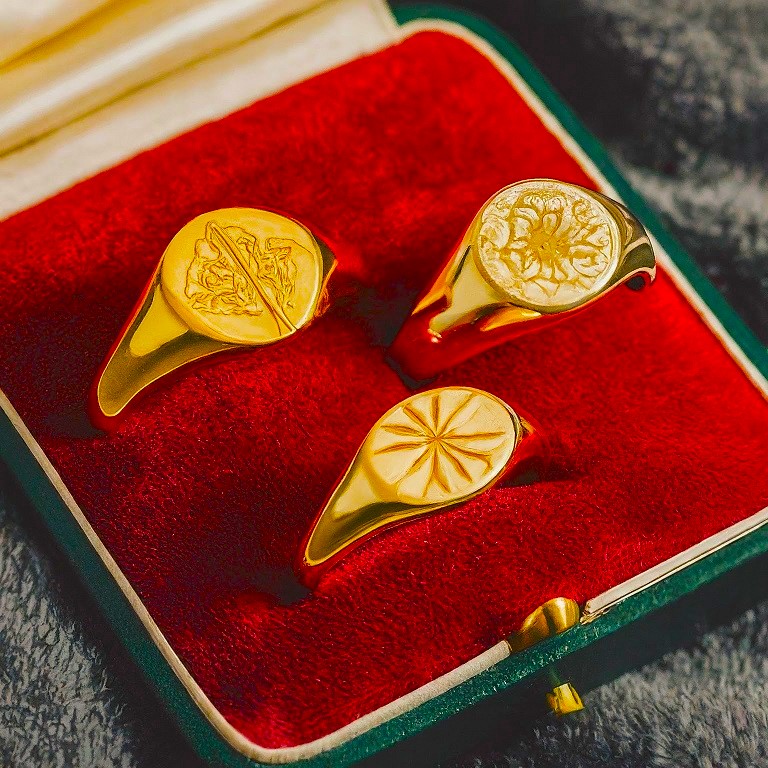Jewelry is one of the most timeless accessories in fashion. It can easily change the look and style of a person.
Choosing handmade jewelry over machine-made is a way of supporting local artisans and small businesses. It also helps establish a direct connection between the artisan and admirers of their work.
Uniqueness
Women and men have adorned themselves with jewelry since before recorded history. From garlands of flowers and bracelets made from woven grass to beads, shells, and stone, people have been decorating themselves with pieces that make a statement for thousands of years.
Unlike mass-produced jewelry, handmade pieces are typically one of a kind. Artisans are highly skilled and passionate about their craft, so you can be sure they put a lot of care and attention into creating each piece. This can take time, primarily if the artisan works with glass, which must be fired in a kiln at high temperatures to solidify.
Independent designers and small businesses often craft handmade jewelry, prioritizing fair trade and sustainable business practices. They may use recycled metals, ethically sourced gemstones, or natural materials like wood and seashells. They also use locally made products and resources, reducing their local communities’ impact. Choosing to purchase handmade jewelry supports these businesses and their artisans and can help ensure they maintain higher standards in the industry.
Personalization
Whether high-end luxury pieces or costume jewelry, shoppers can find various fashion accessories online. This makes it challenging to build a discoverable jewelry store that stands out. A personalized approach is one of the best ways to build a brand consumers love and want to return to.
When shoppers buy handmade jewelry, they connect with the artisan behind it. This is more than just a one-of-a-kind design; it’s also a story of passion and dedication. Many of these artisans live in far-away places, but they can showcase their homeland culture and techniques via the Internet.
People also tend to favor handmade jewelry from Cloud Haven over mass-produced pieces because of its environmental impact. The manufacturing process of mass-produced jewelry involves many unethical practices, including exposing workers to harmful chemicals and materials. Shoppers can help reduce these negative impacts on the world by choosing a local artisan or small independent designer. Moreover, by purchasing a piece of jewelry from these brands, shoppers can help support small businesses and the community.
Value
For handmade jewelry makers, value comes from the quality of their work and the time they spend creating each piece. While mass-produced pieces may be cheaper, they often need more craftsmanship and beauty than handmade jewelry. This is because large manufacturers will often sacrifice quality to make a larger profit and reduce costs.
Buying from local artisans and small independent designers is also a way to support the community and help small businesses thrive. This can give consumers a sense of connection and purpose, essential to the fashion industry, as people become more socially responsible. In addition, many fashion brands use unethical practices, such as exposing workers to dangerous chemicals and poor working conditions.
When deciding on prices for your jewelry, you must consider all your costs, such as overhead, labor, and material costs. Setting prices low can devalue your work and encourage customers to return. On the other hand, pricing too high can scare away potential customers and put your business at risk.
Sustainability
The production of many fast fashion necklaces involves the use of chemicals that can have harmful effects on both people and the environment. These chemicals are often released into the air, soil, and water during production, causing health issues for workers and polluting the surrounding area. In contrast, handmade jewelry is typically made using natural materials and traditional techniques that are more environmentally friendly.
Often, handmade jewelry is made by small businesses or independent designers who prioritize ethical and sustainable practices. These artisans have an easier time operating sustainably, as they tend to have fewer limitations, expectations, and demands placed on them than larger, corporate-owned jewelry brands.
Additionally, handmade jewelry is more likely to be made from eco-friendly materials like recycled metals or repurposed gemstones. Moreover, many sustainable jewelry brands use minimal waste production techniques by sourcing local materials and upcycling scraps. Some jewelry-based companies uplift communities by paying above-market wages and donating to charitable causes. In addition, many of these brands offset their carbon footprint by contributing to reforestation projects and other environmental initiatives.
Recyclability
Jewelry is an essential accessory that can transform your look in seconds. But how many of us know that it can also impact our environment? Many fashion and jewelry companies use unsustainable materials, contributing to water pollution, greenhouse gas emissions, and waste generation. Sustainable artisan brands prioritize fair trade and conscious business practices such as paying workers above-market wages, sourcing materials ethically, and utilizing recycled metals.
Handmade jewelry can also reduce our environmental footprint since it is made without factory-scale machines. It is also usually crafted in small quantities and with care so the artisans can focus on details like polishing the stones and carving out designs.
Thrift stores are a great place to find materials that can be repurposed into unique jewelry. For example, old tin cans or pieces of fabric can be used to create pendant necklaces, bracelets, and earrings. Even hardware stores can provide exciting materials for repurposed jewelry. For example, discarded copper wire can be twisted into a ring or bracelet, and metallic components like hinges and bolts can be soldered together to form complex shapes and designs.




